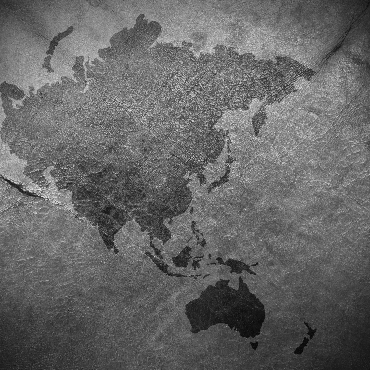NO END IN SIGHT FOR THAI PROTESTS
The political protests taking place in Thailand continue to rage unabated. In mid-October, Thai authorities ramped up their response to the demonstrations when students turned their backs on the queen's motorcade in the capital, Bangkok – a rare public expression of disrespect for Thailand's monarchy. The government initially responded by announcing a state of emergency and arrested a slew of protestors, only to rescind the order days later. King Maha Vajiralongkorn, Thailand's reigning monarch, tried to sound a conciliatory note in early November when he spoke to international media – another rarity in Thai politics – about the possibility of finding common ground with the protestors: "Thailand is the land of compromise," he said.
Even so, the fate of arrested students will influence the willingness of protest leaders to engage in dialogue. At least one demonstrator in Bangkok was charged under a rarely-enforced statute that could entail a lifelong prison sentence. The specter of the military also overshadows the larger standoff. One of the protestors' top demands is the resignation of Prime Minister Prayuth Chan-ocha, who assumed office in 2014 after a military-led coup. If tensions boil over and public pressure on the monarchy increases, some Thai officials are already telegraphing the possibility of yet another military coup to restore order. (Time, September 21, 2020; Associated Press, October 22, 2020; CNBC, October 26, 2020)
BURMESE ELECTIONS DISENFRANCHISE MINORITIES, DESPITE HIGH TURNOUT
On November 8th, Burma's ruling party handily prevailed in national elections, the second since military dictatorship officially ended in the country in 2015. The National League for Democracy (NLD) won the requisite seats in the upper and lower houses of Burma's parliament to form a ruling coalition with the Tatmadaw – Burma's military – which controls a quarter of the seats in both chambers. While the election was marked by high participation, the government of State Counsellor Aung San Suu Kyi announced and enforced regulations that prohibited over a million citizens from voting. According to various reports, hundreds of thousands of these individuals were Rohingya Muslims in Burma's Rakhine state, which has been the locus of severe human rights abuses that have targeted the minority. (New York Times, November 8, 2020; CNN, November 9, 2020)
DUTERTE WAITS FOR BIDEN
Reprising his decision from the summer, Philippine President Rodrigo Duterte again elected to delay a final decision on the fate of his nation's Visiting Forces Agreement (VFA) with the United States, which operationalizes the bilateral Mutual Defense Treaty by setting specific terms for a U.S. military presence in the Philippines. Duterte's initial frustration with Washington stemmed from human rights sanctions that prohibited Philippine Senator Ronald "Bato" dela Rosa from obtaining a U.S. visa. At issue is dela Rosa's role in prosecuting Duterte's anti-drug campaign, specifically in overseeing extrajudicial killings.
Even so, reports indicate that the Philippines also wants to renegotiate specific VFA provisions dealing with legal jurisdictions covering U.S. military personnel. Geopolitically, Duterte has been open about his nation's economic dependence on China, as well as Manila's weak leverage to defend its South China Sea claims against Beijing. Duterte's hesitancy to scrap the VFA will kick the decision well into the first year of President-elect Joe Biden's term in office. Biden, for his part, has telegraphed his proclivity for a multilateral approach to foreign policy, particularly in Asia. (CNN Philippines, November 11, 2020)
CHINA DOUBLES DOWN ON AUSTRALIA PRESSURE CAMPAIGN
Tensions between China and Australia spiked again in November, with revelations that Beijing is prohibiting imports of Australian coal, copper, wine, barley, sugar, lobsters, and timber. Before the coronavirus pandemic, bilateral relations were on rocky ground in the wake of Australia's ban of Huawei and its 5G telecommunications technology. In its wake, policymakers in Canberra led the push in the World Health Organization to investigate the virus' origin, further angering officials in Beijing. The trade restrictions follow China's official warnings discouraging tourism and educational exchanges in Australia. While quantifying China's punitive actions against Australia is difficult, the Perth USAsia Centre estimates the annual economic impact to be just shy of $50 billion. Officials in Canberra characterized the trade prohibitions as "deeply troubling." (Guardian, October 27, 2020)
Want these sent to your inbox?
Subscribe
Indo-Pacific Monitor No. 13
Related Categories:
Human Rights and Humanitarian Issues; International Economics and Trade; Australia; China; South Asia; Southeast Asia
